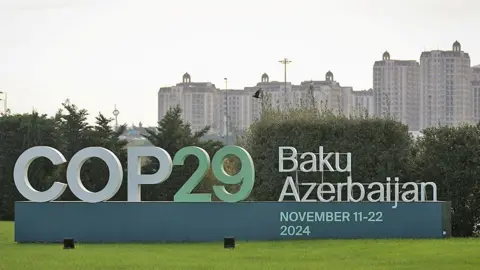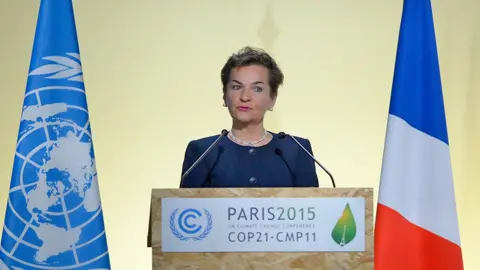Capitalist Democracy Is a Sham!
For Socialist Democracy!

Image by Mike Erskine.
[Adapted from Chapter 10 of Thinking Systematics: Critical-Dialectical Reasoning for a Perilous Age and A Case for Socialism (Fernwood Publishing, 2024) by Murray E.G. Smith and Tim Hayslip, https://fernwoodpublishing.ca/book/thinking-systematics]
“Vote for the candidate of your choice, but vote!” is a frequently invoked platitude at election time in Western liberal democracies, one often accompanied by the (non-sequitur) admonition: “If you don’t vote, you have no right to complain.” Arguably, the most important reason that the overlords of public opinion in Western societies care so ritualistically about “getting out the vote” is that low voter turnout may call into question the popular mandate of a government. It’s common knowledge, after all, that a party can form a government (either on its own or in coalition with others) with much less than 50 percent of the total vote if the latter is split among several parties.
In the US presidential elections of 2000 and 2016 and the Canadian federal elections of 2019 and 2021, the winners actually attracted fewer votes than their main electoral rivals (due respectively to the peculiarities of the US Electoral College process and the Canadian first-past-the-post parliamentary system). Low voter turnout compounds this problem by making it possible for a government to be formed by candidates/parties enjoying as little support as 20 percent (or less) of the electorate. In the wake of the British election of July 2024, for instance, Keir Starmer’s Labour Party was able to claim a huge majority of seats in the UK Parliament by winning just one fifth of the votes cast. The low voter turnout in that election has hardly gone unnoticed by the British people, who promptly decided Starmer’s new government is no less odious than the incumbent Conservative one and lacks any actual popular mandate. Opinion polls suggest that Starmer is now the most unpopular prime minister in living memory.
What’s at stake with voter turnout is nothing other than the perceived legitimacy of a government and its policies. Can it be said, with any degree of plausibility, that a particular government policy (for example, Starmer’s full-throttled support of Israel’s murderous assault on Gaza) reflects “the will of the people” if that government came to power with the backing of a relatively small segment of voting-age citizens? If a government pushing through a widely unpopular policy has received the support of just one-fifth of the electorate, doesn’t real democracy require that the policy in question be vigorously questioned and even actively opposed?
The perceived illegitimacy of a government, especially one that won an election with low voter turnout, would seem to create an important opportunity for large numbers of working people and youth to mobilize against its policies and to engage in acts of resistance. In other words, it presents an opportunity to politically engage a population that might otherwise remain passive, apathetic and paralyzed by the fiction that the government has a right to implement oppressive and harmful policies on the grounds that it has a “mandate from the people.” The active participation of large numbers of citizens in politics — in questioning, challenging and resisting contentious policies — is, however, the last thing that the guardians of the status quo want to encourage. Far better to get out the vote so that the electoral victor can claim a credible mandate to impose policies that will almost certainly conflict with the interests and views of the great majority of the population.
Radical critics of capitalist democracy sometimes counter the mainstream mantras with the slogan: “If elections could change anything they’d be illegal.” Of course, this is an overstatement in certain respects. Elections can result in new policies with significant impacts and alter the political climate markedly. All the same, elections alone can never pose a fundamental challenge to the existing social, economic and political arrangements. Early twentieth-century fears of elitist critics of democracy (like Vilfredo Pareto and Gaetano Mosca), as well as the hopes of some radical opponents of capitalism that a universal franchise would lead to the election of socialist governments and the eradication of class inequality, proved to be misplaced. Arguably, the universal franchise, over the long term, may even have had a conservatizing and stabilizing effect by creating illusions in a “parliamentary road” to social progress.
Over a century ago, the German sociologist Max Weber recognized that the formal participation of all adult citizens in the selection of a government confers legitimacy on the forms of domination imposed by it. From the standpoint of the ruling class, the most appealing thing about representative liberal democracy is that it allows real decision making to remain in the hands of a few privileged elites. Meanwhile, mass actions on behalf of majority interests can be portrayed as defying the mandate of “the duly elected government.”
In Capitalism, Socialism and Democracy (1942), the Austrian economist Joseph Schumpeter described democracy as “that institutional arrangement for arriving at political decisions in which individuals acquire the power to decide by means of a competitive struggle for the people’s vote.” In this commendably candid and quite realistic definition of capitalist liberal democracy, the ancient democratic ideal of “rule by the people” all but disappears, even as the principle of majority rule is vitiated by the reality of rule by a small circle of individuals who lay claim to the “consent of the majority.”
All in all, substantial grounds exist for viewing the various forms of representative democracy existing in capitalist societies as little more than a shell game: a choice between Tweedledum and Tweedledee. In good part, this is because the policy choices available to any party that comes to power through a conventional electoral process are necessarily severely constrained. Even if a government is formed by a political party rooted in the working class, and even if such a party is elected on the basis of a platform calling for a socialist planned economy under workers’ control (a platform that no mass-based party anywhere has advanced for decades), a gradual parliamentary transition to socialism is a highly unlikely prospect. The reasons are clear enough. First, if such a government remains faithful to playing by the rules of existing constitutions (which everywhere permit only exceedingly gradual change), the measures taken to bring about socialism would inevitably lead to capital flight, massive resistance from the “business community,” and a general disarray and even paralysis of the (still-capitalist) economy. Not only would the active agents of capital do everything in their power to block any incremental moves toward socialism, but the structural imperatives and dynamics of the economy would force any nominally socialist government committed to gradual reform to water down its program and adopt the role of “responsible” administrator of the capitalist order. This has been the fate of leftist parties whenever they’ve been able to form governments following a parliamentary electoral victory. Not surprisingly, then, the actual maximum goal of such parties, whether social-democratic or ostensibly communist, has been reduced to creating “a more humane and democratized capitalism.”
Yet even this seemingly modest goal has proven to be beyond the reach of governments formed by labour-based reformist parties or coalitions of the left. And the reason should be obvious: twenty-first-century global capitalism is irredeemably characterized by growing wealth and income inequalities, the accumulation of massive debt, lackluster profitability of productive capital, an explosive proliferation of what Karl Marx called “fictitious capital,” an inability to deal with the climate emergency, intensified suppression of basic democratic rights, and stepped-up preparations for a new world war. Given these objective circumstances, the prospects for any significant measure of progressive reform in even the richest capitalist nation-states have diminished drastically, as the putative “left wings” of various political establishments succumb to the ”logic” of austerity, militarism and “national security.”
The second reason any ostensibly left-progressive or socialist government committed to abiding by existing constitutional arrangements must fail in bringing about radical change is that it would necessarily preside over a pre-existing state apparatus — including an administrative bureaucracy, a judiciary, a standing army and a police force — that has been assiduously shaped to serve the interests of capital against labour. To the extent that any such government might make serious inroads into the power and prerogatives of the propertied classes it would almost certainly invite resistance and sabotage from entrenched branches of the state apparatus, above all from what Frederick Engels called its “armed body of men.”
When the Popular Unity government of Salvador Allende sought to nationalize foreign-owned multinational corporate holdings in Chile in the early 1970s (while leaving more than 90 percent of all other firms in private hands), the top officers of the Chilean military staged a brutal coup, murdering thousands of Chilean leftists and crushing the organized labour movement for a generation. Sadly, the lesson drawn by most electorally oriented “socialist” parties from this experience was not the need to abandon the chimera of a “peaceful, parliamentary road to socialism” and adopt a revolutionary program and strategy, but rather the need to further “moderate” their programs, to reassure the capitalist class of their willingness to act as responsible stewards of the existing order, and to discourage their supporters from pursuing any truly radical goals.
Liberal-democratic state forms are tolerated and even preferred by the ruling classes of capitalist societies — but only if they pose no serious threat to capitalism. Whenever capitalist interests become seriously imperiled, the “democratic” capitalists, whether of conservative or liberal hue, are fully prepared to resort to authoritarian methods to defend their property, power and dominance. They will back a Hitler (as in Germany), a Mussolini (Italy), a Salazar (Portugal), a Franco (Spain), a Suharto (Indonesia), a Marcos (Philippines) or a military junta (as in so many countries of the Global South) as the last line of defense of their class interests.
To be sure, for many decades after World War II, representative democracy was the preferred political form of governance in the wealthier and more stable capitalist countries. This was because such countries were able to afford the kinds of material concessions to their working populations that often flowed from a multi-party competition for the “people’s vote.” Historically, those concessions typically involved government social-welfare programs, such as improved public health care and education, unemployment relief and other forms of “social assistance.” The intended purpose of these policies was to politically stabilize societies exhibiting extreme forms of material inequality and attenuate class conflict. What’s more, it was understood by more far-sighted capitalists that, absent a multi-party system and some form of representative government, capitalist societies can veer toward extreme forms of plutocracy: undisguised rule by the wealthy. So, in a sense, representative government and the universal franchise serve to discipline the capitalist class to subordinate its short-term appetite for profit maximization to its longer-term interest in safeguarding social cohesion and perpetuating the existing social order.
Although these considerations still hold true to some extent today, the global conjuncture that opened with the Great Recession and financial crisis of 2007–09 marked a major turning point. The global economic malaise of the last fifteen years and the deepening instability of global capitalism have significantly eroded confidence in capitalist democracy amongst broad masses of working people in numerous countries, causing capitalist elites to view the curtailment of democratic liberties, repression of worker militancy, and militaristic adventurism as essential to the defense of their system going forward.
In the past, representative democracy was the preferred form of governance of capitalist elites for another important reason: it encourages the masses of people to identify with the state and to view the existing social order as just. Those lacking significant property or wealth in a capitalist society understand quite viscerally that “he who pays the piper calls the tune” and that economic clout is easily convertible into political influence and power. In the absence of representative democracy, it’s all too easy for the poor, the working class and even privileged middle-class groups to conclude that the state is essentially corrupt and serves only the wealthy. Historically, the presence of liberal-democratic institutions modified this perception to a significant extent. Working people were persuaded to believe that the state was funded by their tax dollars and that, as taxpayers with the right to vote, they could exercise at least some influence over government officials, even if those officials also remained beholden to various “special interests.” Representative democracy thus encouraged people to believe that political influence and power is plural and diffuse, not concentrated and class based. And this allowed the state to represent itself, with some plausibility, as a neutral mediator of competing interests in society — as an institutional power that stands above class divisions while promoting an overarching national interest.
This brings us to a third consideration. Democratic forms of rule in capitalist societies encourage the inculcation of nationalist ideology — the idea that what divides the population of a given country in terms of class, race, gender, age or religion is less important than the common “values” uniting it. Not only does nationalism divert working people from pursuing independent forms of political activity (especially of an explicitly anti-capitalist sort) and dissuade them from recognizing that their interests may actually converge with those of workers in far-off lands — it also makes it much easier to mobilize popular support for the foreign policy and military adventures of the ruling class.
Chest thumping about how “our democratic way of life is threatened by totalitarianism” proved to be an effective means to rally mass support for a hard line against Communism both at home and abroad during the Cold War of the last century. And today Western imperialist states are trying hard to convince their populations that their (increasingly farcical) “democracies” are under threat from the putative “autocracies” of China and Russia. With conflicts now intensifying between the Collective West (the US and its major allies) and the Global South, even many self-styled progressives, human-rights activists and “socialists” have lined up behind their own governments against China and Russia’s joint project of achieving a “multipolar world.” In doing so, however, this pro-establishment “left” is unwittingly building popular support for a catastrophic global military conflagration.
Although likely to be waged under the banners of democracy, human rights and “protecting national security,” the US-led Collective West’s true aims in the looming Third World War will be the neocolonial subjugation and fragmentation of China and Russia and the (re)consolidation of US “full-spectrum dominance,” while also settling accounts with Cuba, North Korea, Venezuela, Syria and Iran. To prevent such a global cataclysm, working people and youth need to mobilize on a program that recognizes that the ruling classes of the liberal democracies are not merely hypocrites when it comes to human rights, freedom and democracy, but also the guardians and chief beneficiaries of a world order that perpetuates the misery, oppression and exploitation of billions of people, including the vast majority of people living in the “democratic West.”
The fourth way that representative democracy has served capitalist interests historically is that it deflects attention away from the operations of a crisis-prone and exploitative economic system to the policies of particular political parties and governments. In capitalist societies, governments routinely take credit for prosperity and are just as routinely blamed for economic downturns. The illusion is created that the performance of a capitalist economy depends primarily on how well it is being administered by a particular governing party — a notion that ignores the simultaneous occurrence of recessions across several countries (regardless of the specific policies being pursued by their respective governing parties) and also exaggerates absurdly the ability of any government to effectively “administer” an economy dominated by the capitalist laws of value and profitability. Working people are urged to blame politicians for bad economic times rather than recognize that the endemic contradictions and irrationalities of the capitalist mode of production are the underlying causes of unemployment, economic insecurity, declining living standards, and chronic poverty.
To reiterate, however, representative forms of liberal governance are currently in deep crisis and losing their ability to pacify the masses and contain social unrest. One need only consider the 2020 social explosion in the US following the murder of George Floyd, the massive protests in 2023 against the Macron government in France, international mobilizations of workers and students against Israel’s genocidal assault on the Palestinian people in 2023-24, and massive strike waves in the US, Britain, Canada and other Western countries in response to rising living costs, above all the unaffordability of decent housing. From the point of view of capital and the governing elites, these developments demand the curtailment of such fundamental democratic liberties as the right to strike, to march in the streets and to freely express dissident views. Concurrently, from the point of view of the poorest 80 to 90 percent of the population in most Western countries, the prevailing forms of governance are increasingly seen as a thin facade for the naked rule of big capital. Given these circumstances, the long-standing “centre” of the political spectrum is plainly no longer holding, and new centrifugal forces are emerging, pointing to an eventual showdown between fascism and socialism.
A genuinely democratic form of governance is simply impossible to envision within the class-antagonistic framework of capitalist society. Conversely, a vibrant system of democratic-socialist self-administration, based on “council democracy” and a socialized, post-capitalist economy, is easy to imagine (if not to achieve). In such a system, citizens would seek political influence through rational persuasion rather than through intimidation or privileged access to the mass media or policy makers. Voting wouldn’t be limited to general elections held every few years with the aim of legitimating the arbitrary decision-making powers of the party sufficiently well-funded, cunning or lucky enough to win election. Instead, citizens would exercise their right to vote through active participation in deliberative bodies (councils/assemblies) charged with addressing a range of issues and problems pertaining to economic and social planning. Active participation in workplace and community councils might even become a condition for casting a vote.
In such circumstances, might the ancient ideal of democracy — of rule by the people — be truly realized? Important historical experiences clearly suggest that working people can take the tasks of administering a socialized economy and a socialist polity into their own hands: the experience of productive cooperatives for over two hundred years; the system of workers’ control of production that existed during the first few years of the Russian Soviet Republic; the involvement of large numbers of workers in self-managing enterprises in the former Yugoslav Federation; the workplace and community councils operating in Cuba and Venezuela today. These and other historical precedents testify to the capacity of working people to exercise power in ways consistent not only with social solidarity and democratic decision making but also with improved productivity and efficiency. What’s more, twenty-first-century science and technology have created conditions and capacities that are objectively much more favourable to the flourishing of a socialist democracy than any that have existed in the past. As we have argued elsewhere: “The bureaucratic organisation of the production process is not at all a necessary by-product of labour-saving technological innovation. To the contrary, the displacement of living labour from production and the spread of automation, robotics, and digital technologies should undermine any purely ‘technicist’ rationale for bureaucratic relations of authority, while liberating the social time required for educating and involving the ‘associated producers’ in the management not only of workplaces but society as a whole.” (Murray Smith, Invisible Leviathan, 2019).
What needs to be emphasized, finally, is the decisive role that the great mass of citizens must play in democratically deciding the most important macroeconomic and social questions confronting a global socialist commonwealth, while also attending to matters of a more local nature. Debate and voting would revolve around the contending policy platforms of competing pro-socialist political parties, operating through a system of workplace, community, regional, national and international councils. Such a vibrant and multilayered socialist democracy would draw the masses of workers, consumers and youth into political life at every level, with a view to giving an increasingly well-informed and properly educated socialist citizenry the power to determine the evolving shape of a truly planetary egalitarian-socialist civilization.








